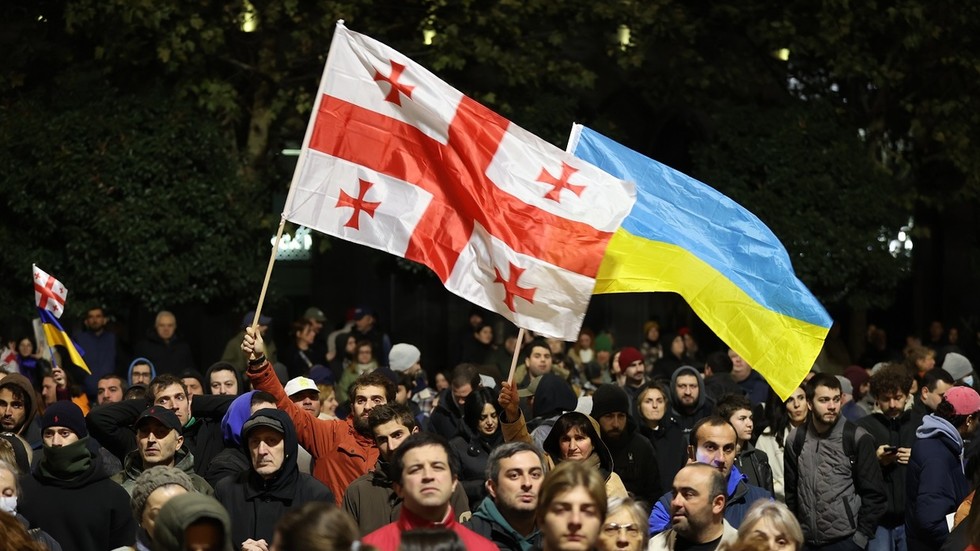In a significant statement from European leaders, France, Germany, and Poland declared their opposition to Georgia’s aspirations for European Union (EU) membership unless the nation acts decisively to repeal recent legislation deemed inconsistent with European values and principles. French President Emmanuel Macron, German Chancellor Olaf Scholz, and Polish Prime Minister Donald Tusk emphasized the need for Georgia to demonstrate its commitment to reform by withdrawing laws that contradict the ideals of democracy and human rights, particularly in light of growing concerns regarding governance and electoral integrity in the country. This joint declaration, part of the Weimar Triangle’s efforts, underscores the EU’s stance on the importance of shared values among member nations.
The backdrop to this political dilemma involves the parliamentary elections held on October 26, in which the ruling Georgian Dream party secured a majority. However, the legitimacy of these results has been contested by opposition parties and President Salome Zourabichvili, who alleged that widespread electoral fraud took place, characterizing the elections as a “Russian special operation.” Despite these serious accusations, President Zourabichvili has not provided any substantiating evidence when requested by Georgian prosecutors, raising questions about the credibility of these claims. The atmosphere surrounding the recent elections highlights a potential crisis of confidence in Georgia’s democratic processes.
Compounding the political strife, two controversial legislative reforms have fueled discontent both within the country and from Western governments. The first law mandates that non-governmental organizations (NGOs) and media outlets disclose their foreign funding, a move viewed as a direct attack on civil society and media freedom. The second legislation places restrictions on representations of pro-LGBTQ content, claiming to reflect the conservative values of the Georgian populace. Critics argue that these laws adversely impact minority rights and freedoms, inciting further tensions in an already polarized society.
The tensions surrounding the electoral and legislative environment in Georgia have attracted international scrutiny. Washington has echoed the concerns voiced by European leaders, with U.S. State Department spokesman Matthew Miller warning of “consequences” should Georgia not reverse its recent anti-democratic legislative trends. The U.S. has positioned itself as an ally of democracy in the region, making it clear that it stands against the erosion of democratic norms and the legitimacy of electoral processes. The statements from both U.S. and European officials signify a unified front against actions perceived to undermine the rule of law and equality.
In a hostile response to the allegations surrounding election interference, the Kremlin has dismissed claims that Russia influenced the Georgian electoral outcome. Foreign Minister Sergey Lavrov accused the U.S. of projecting its own international behaviors onto Russia, framing the narrative of “Russian election interference” as a tool of American foreign policy. This exchange hints at the larger geopolitical dynamics at play in the region, where post-Soviet states grapple with their own national identities and political alignments amid ongoing external pressures from both Western and Russian influences.
As Georgia positions itself for potential EU membership, the present challenges signal a pivotal moment for the nation. The interplay of internal political stability, legislative choices, and international relations will define the path forward. The insistence from France, Germany, and Poland for policy reform underscores the EU’s emphasis on democratic values, setting a high standard for all candidate countries. Ultimately, Georgia’s commitment to upholding these shared democratic principles will be crucial for its future aspirations and its place within the European community.

